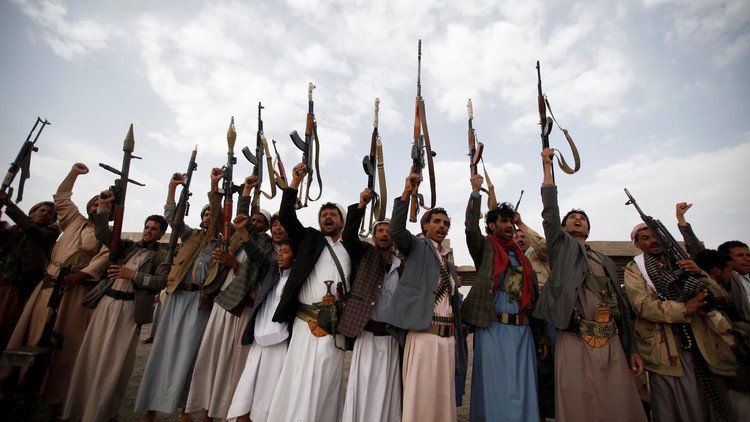Jafar Qanadbashi, in an interview with the website of the Strategic Council on Foreign Relations, said: What is happening now in connection with the Saudi coalition’s 6-year war against Yemen in the political and military arenas are special events that are very different from the sum of the developments of the last 6 years, and remarkably informs of the imminent success of the Yemeni people and weakness and inability of the invading forces to that country.
He continued that the series of missile and drone operations in recent weeks by the Yemeni army and civilian forces on Saudi Arabia’s most important military and economic facilities demonstrate the tremendous and growing military capability of Yemen, and this is precisely at a time when significant and strategic progress of the Yemeni military forces at the field level, especially in the Ma’rib Province, has brought astonishing success to the people of that country.
Regarding the Saudi position and policies towards developments in Yemen, he explained: Currently, the messages sent from Riyadh not only show military and political weaknesses, but also show confusion and many doubts in making appropriate decisions on how to continue this 6-year conflict with Yemen.
Commenting on Turkey’s recent activities in relation with Yemen, Qanadbashi said: When it comes to the presence of Turkish troops in Yemen and Ankara’s cooperation with Saudi Arabia in the six-year war, it can be considered as the only remaining window to free the Saudi authorities from the quagmire for the creation of which they have played the key role and could affect Turkey as well.
The expert stressed: On the one hand, Turkey was one of the countries that at the beginning of the war refused to invite Saudi officials to cooperate in the military invasion of Yemen, and on the other hand, its positions near the various branches of Muslim Brotherhood were among the issues that prevented establishment of friendly relations between Saudi Arabia and Turkey. Saudi officials have always feared the Brotherhood’s movements in the country, as well as other countries in the Arabian Peninsula, and sought to limit their movements in all Arab countries by placing pro-group countries such as Qatar and Turkey in opposition ranks.
Explaining the current policy of Riyadh officials on proximity to Turkey and accepting the military presence of its forces in Yemen, he said: Those policies clearly indicate the end of the Saudi-imposed war in Yemen and efforts to change the composition of the invading forces in that country.
Regarding the doubts over the success of this new policy in Riyadh, the expert on the Middle East affairs said: The success of this policy, despite the green light of Western supporters of Saudi Arabia, is accompanied by many doubts. As the Turkish authorities are also very cautious in adopting this new policy of military presence alongside Saudi forces in Yemen and are worried that they too will be caught in a crippling swamp.
He noted that the decision by Riyadh officials to involve Turkey in Yemen was an acknowledgment of Saudi Arabia’s failure to implement its belligerent policies in Yemen for the past six years, adding: While other moves aimed at ending the Yemen war in a dignified manner are running; movements have been demonstrated by announcing the regional policies of the Democrats and end of the US arms support for Saudi Arabia, and now in the form of movements such as declaring a ceasefire or preparing for negotiations in various arenas. In particular, the issue of humanitarian catastrophes in Yemen and the problems associated with sanctions and the severe economic blockade of the country have provoked widespread international reactions and exposed the status of Saudi Western supporters to serious dangers.
Qanadbashi concluded by emphasizing that the six-year war in Yemen was at a specific crossroads in the first days of its seventh year, adding: One way is to seek help from Turkish forces to take part in this war and the risky continuation of the war in a new style and way, and the other way includes peaceful methods and diplomatic negotiations, which will be the main focus of developments related to the continuation of Saudi hostility against this country. Of course, both Saudi Arabia and its Western supporters seem to be avoiding the conditions that will lead to the victory of the Yemeni people and the end of military, economic and political pressure on the country, and are trying to prevent this strategic and very important Middle Eastern country to be put at the disposal of a new government based on democracy.










0 Comments